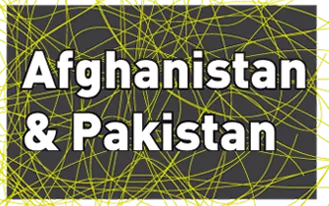STAP-RP
Sources of Tension in Afghanistan & Pakistan: Regional Perspectives
The Sources of Tension in Afghanistan & Pakistan: Regional Perspectives policy research project (2011-2014*) explores the main sources of tension in Afghanistan and Pakistan and regional actors’ roles in relation to these.

*July 2011-November 2016
The Sources of Tension in Afghanistan & Pakistan: Regional Perspectives policy research project (2011-2016) explores the main sources of tension in Afghanistan and Pakistan and the roles of regional actors in this regard. It maps their interests; follows evolving sources of tension; produces specific policy analysis useful for UN, EU and European government stakeholders, as well as Afghan and Pakistani policymakers; and clarifies the type of regional, comprehensive approach required of the international community in this strategic region.
The project is funded by the Norwegian Ministry of Foreign Affairs, and actively involves regional experts as well as policymakers from Europe (including Norway, Spain and the EU).
Mapping Document:
This Mapping Document draws on ten expert papers commissioned under the CIDOB project “Sources of Tension in Afghanistan & Pakistan: A Regional Perspective” (STAP RP), together with the analytical outputs of project round table seminars and in-region research (September 2011-November 2012); and interviews with a wide range of stakeholders in Afghanistan, Pakistan and Europe over the same period. The document schematically summarizes policy research findings on the sources of tension with regional implications that affect Afghanistan and Pakistan; and identifies the interests of, and related “red lines” for, the five main implicated regional powers: India, Iran, Russia, China and Saudi Arabia.
(December 2012, updated March 2014 and January 2015 (additional publications and readings)
Experts:
- Emma Hooper
- Roberto Toscano


